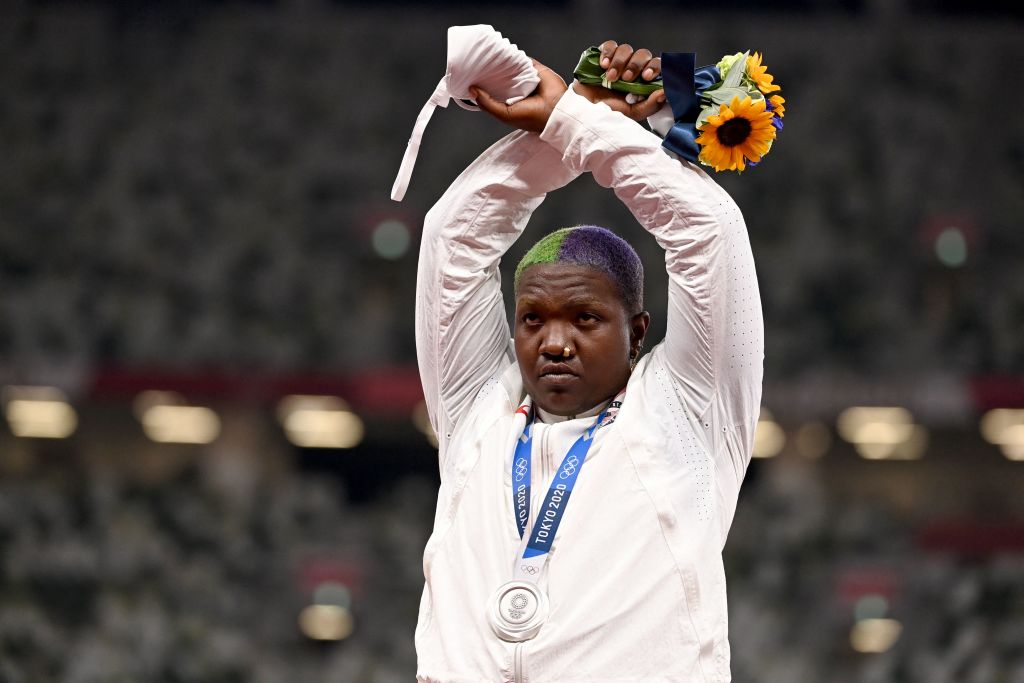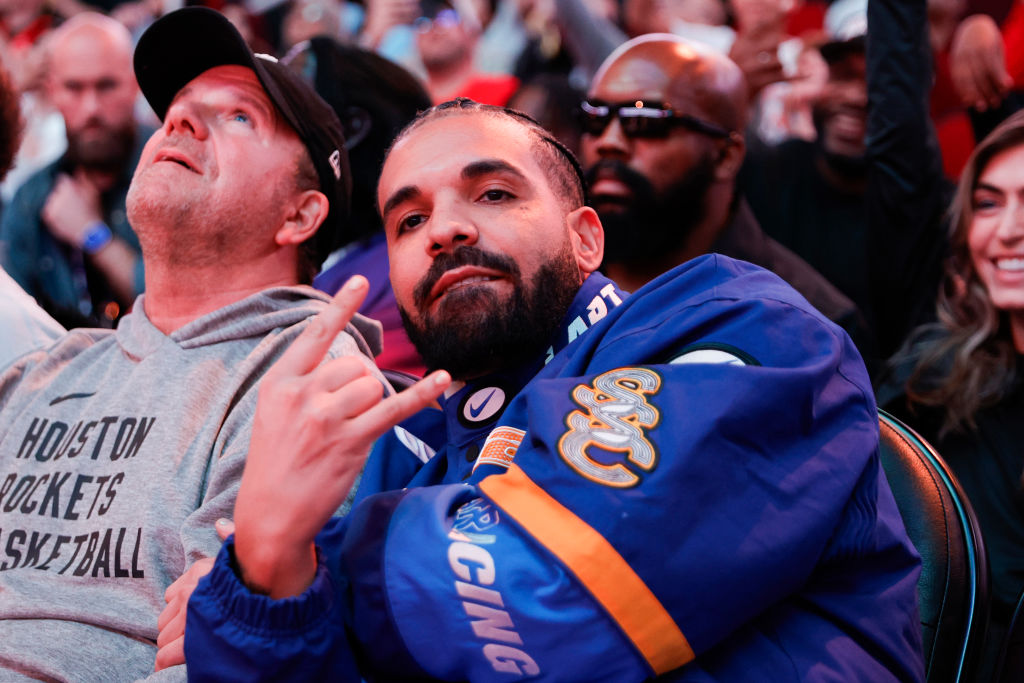
Source: INA FASSBENDER / Getty
Raven “Hulk” Saunders, the 5’5″ shot putter from Charleston, South Carolina, took home the silver medal on Sunday with a staggering throw of 19.79m (64-feet, 11 inches) in the Tokyo 2020 women’s shot put competition. However, her display at the awards ceremony may negate the impressive achievement: as the U.S. anthem played and the medal hung from her shoulders, Saunders crossed her arms above her head in the gesture of an “X” in protest. She told the Associated Press her demonstration represented “the intersection of where all people who are oppressed meet.”
The 25-year old Saunders, who is Black, is also openly queer and has been forthcoming about her own mental health struggles, to the point of contemplating suicide at one point. But her moment of expression was in direct violation of the amended Rule 50 of the Olympic Charter, which prohibits individual or political statements of any kind at the opening ceremony, on the podium, or during official play. Athletes who defy the regulation risk being stripped of their medals.
The Olympics has had its moments of outspoken political demonstration, though: one such famous event is the Black Power Salute at the 1968 Mexico City Olympics, and another episode was the massacre of nine Israelis by Palestinian militants at the 1972 Munich Games.
However, after last year’s killing of George Floyd and the many Black Lives Matter protests around the world, many athletes considered Rule 50 outdated and callous. The U.S. Olympic and Paralympic Committee eventually decided it would not take action against American athletes who violated the rule, and that forced the IOC to reconsider its stance.
These Olympics have not been without demonstration by other athletes, either. On the very first day of this year’s games, multiple women’s soccer teams took a knee on the pitch before the initial kickoff.
It is not yet certain if the IOC will sanction Saunders for her move, but when she was asked what her ultimate goal was, she answered, “[t]o be me. To not apologize.” Saunders considers the moment not only personal to her but to those like her.
“Everything that I’ve been through mental health-wise,” she later continued, “injuries, everything like that, financial, really being able to invest everything that I have mentally and physically. And be able to walk away with a medal and inspire so many people in the LGBTQ community, so many people who have been dealing with mental health issues, so many of the African-American community, so many people who are Black all around the world, I really hope that I can inspire and motivate.”
















